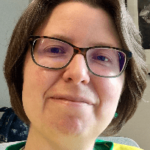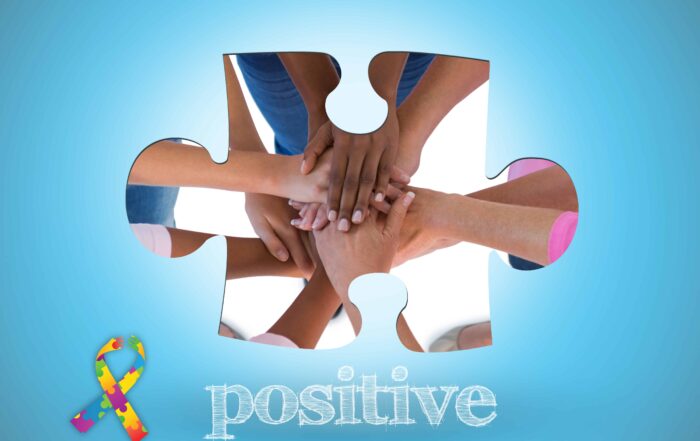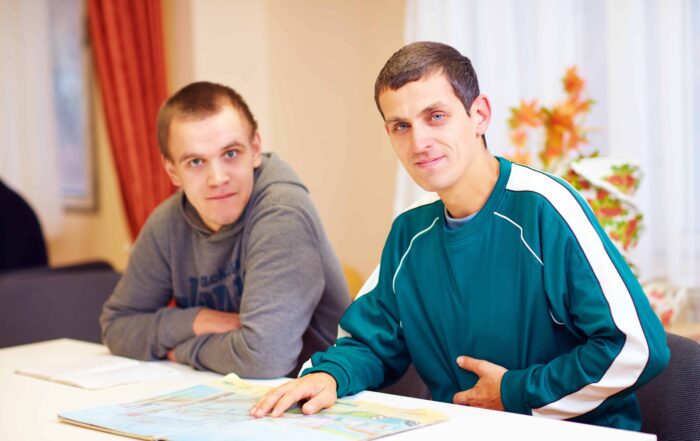Casanova dives into the ancient origins of autism susceptibility genes. She outlines periods of rapid gene evolution in early vertebrates and provides an introduction to basic genetics. The presenter characterizes autism genes by length, age, conservation, and protein interaction. Casanova considers variation/mutation tolerance of autism genes compared to nervous and developmental gene groups. She ultimately demonstrates that most autism-related genes are integral to protein complexes and radiated more than half a billion years ago during a phase of rapid brain evolution in vertebrates. Casanova provides a presentation summary before the Q&A.
Take the knowledge quiz for this presentation HERE.
In this webinar:
1:54 – Introduction
2:58 – Background: Gene radiations over time
4:30 – Histogram of autism gene age
5:45 – Evolutionary period of early vertebrates
9:02 – Gene conservation
11:35 – Basics aspects of autism genes
14:23 – Genetics 101
17:11 – Study: Autism gene characteristics
19:25 – Results: Gene length
21:24 – Gene length vs protein length
23:16 – Transposable elements, conserved noncoding sequences, and autism gene complexity
29:25 – Results: Gene conservation
36:00 – Evolutionary rate and inheritance patterns
40:45 – Dosage sensitivity – Gene balance hypothesis
43:50 – Analogy: Complex ratios and cars
45:50 – Characteristics of dosage sensitive genes
47:00 – Metabolic genes
50:10 – Protein to protein interactions
53:10 – Study and data limitations
55:00 – Gene age and ohnolog genes
58:30 – True brain evolution
1:02:00 – Nervous system evolution
1:03:00 – Functional enrichment in autism genes
1:05:00 – Summary
1:07:15 – Q&A
Introduction to gene evolution and genetics
Casanova provides a brief history of human genome evolution, highlighting periods of intense gene radiation (gene evolution). She explains that around the time of early fish (~530 mya), there was a significant increase in the number of radiating genes which coincides with two rounds of whole genome duplication (WGD) (5:45). Casanova asserts that such an increase in total gene number across this period is suggestive because WGDs are linked to other major gene radiation periods (7:40). Gene radiation dramatically slowed after the tetrapods (four-limbed vertebrates) appeared (4:30), and tetrapod (including human) genes are relatively conserved compared to other animals (9:02). She defines the basic components of genes as (14:23):
- Promoter region, which regulates gene expression
- Exons that code for proteins
- Introns sit between exons and are spliced out before the protein is produced – they can affect gene expression
Proteins are the basic building blocks of cells in the body, and transcripts produced from each gene determine which proteins are made (16:24). Casanova introduces a 2019 study that examined characteristics of autism genes, including length, conservation, protein interaction, and age. She explains that understanding what genes do and when and why they evolved can help us understand a protein’s most basic function. She asserts that this may help us understand autism susceptibility genes more than studying people will (17:11).
Autism susceptibility gene characteristics
The study found that autism genes are generally longer than control genes in the nervous, developmental, regulatory, and innate immune systems. Autism genes also tend to produce unusually large proteins, which suggests functional complexity (19:25). Casanova explains that autism genes are gigantic compared to the relative size of the proteins they are creating, which is not the case in any other gene group (21:24). She defines
- Transposable elements (TE): small segments of DNA that can cut/copy themselves around the genome.
- Conserved noncoding sequences (CNE): conserved sequences that do not code for proteins but can be gene regulators. They are tucked inside the introns of genes.
The total number of TE and CNE in autism genes is significantly greater compared to other groups (23:16). Many CNE, she continues, are frequently borrowed from TE, suggesting that TE are turned into regulatory sequences (CNE) at a much higher rate than is usual in the genome (28:17). Casanova states that this abundance of potential regulatory sequences within autism genes means that “the complexity of expression and capacity is significantly different from what we see in the genome as a whole” (25:08).
The speaker outlines different measurements of gene conservation or how conserved a given gene sequence is across groups. Measures included ExAC pLI scores, RVIS scores, and frequency of number-specific sections of DNA (copy number variant) (29:25). Both ExAC pLI (31:55) and RVIS scores (33:05) revealed that autism genes are very intolerant to gene variation and mutation. They also found that copy number variants (CNV) target fewer autism susceptibility genes than others in the genome (33:40). Casanova highlights that CNVs are more deleterious (deadly) within autism genes and asserts that these findings suggest another level of mutation intolerance in autism-related genes (34:55).
Autism gene evolutionary rate was significantly lower than controls, suggesting that autism genes have been more tightly conserved than the genome background across the animal kingdom. Casanova underscores that these genes have been tightly conserved for more than half a billion years (36:00). The speaker presents another study that investigated the inheritance patterns of intellectual disability (ID) and ID associated with autism (ID+autism) (37:31). They found that about 60% of the mutations associated with ID+autism are inherited dominantly, meaning only one version of the gene needs to be inherited for expression (39:04).
Dosage sensitivity and the age of autism genes
Dosage sensitivity measures how sensitive a given gene is to subtle changes in expression (40:45). Casanova explains that proteins are often involved in complexes or critical signal pathways. The proper functionality of these complexes/pathways depends on the ratio of protein components produced by the genes. If a single protein dosage is altered, the entire complex/pathway is also modified (41:45). These variations are, therefore, strongly selected against, and mutations tend to be expressed dominantly. Dosage-sensitive genes do not like to be duplicated or deleted in single-gene scenarios due to ratio disruption. They are, therefore, underrepresented in CNVs and overrepresented in genes derived and retained from WGD (45:50). Contrastingly, less sensitive genes are not likely to form complexes/pathways and so are less vulnerable to small/single dosage changes and are overrepresented in CNV (47:00). Casanova reiterates that autism susceptibility genes are highly dosage sensitive, highly conserved, and essential in complex/pathway creation. Therefore, they exhibit significantly more protein-protein interactions (PPI) than control groups (50:10).
The speaker underscores that at least 50% of autism genes arose more than half a billion years ago, likely due to WGD. (58:30). Casanova discusses the functional enrichment of autism genes compared to controls across time. She notes that a large percent of autism-related genes are associated with synaptic components and radiated between early animals and bony fishes (1:03:00). She highlights that the true brain (which humans have) developed around this time, which explains the concentration of synaptic and neural genes in the autism group (1:00:32). Casanova provides the following summary points before the Q&A session.
Autism genes
- Are usually long
- Produce larger, potentially more complex proteins
- Contain greater total TE and CNE in their introns
- Contain high density of CNE in introns
- Are highly intolerant to variation
- Are older, on average, than the rest of the genome
- Have more PPI, are highly dosage-sensitive, are tightly conserved across animals, and are often inherited in a dominant fashion
- Radiated during early animal evolution, many as the result of WGD, and may have played essential roles in critical steps in the evolution of the early nervous system
- Are enriched for functions at the synapse, neural projections, and processes surrounding neurogenesis, all of which were rapidly evolving in early animals up through the evolution of bony fishes.
The speaker:

Emily Casanova, PhD, is an assistant professor in the Neuroscience program and the Department of Psychological Sciences at Loyola University, New Orleans, in the fall of 2022. Throughout her training and early career, Dr. Casanova’s research has been focused on the study of autism from various perspectives, including investigation of its overlap with hereditary connective tissue disorders such as Ehlers-Danlos syndromes and fragile X premutation, as well as the investigation of major effect autism susceptibility genes and their evolution. Related to the study of autism gene evolution, Dr. Casanova has also been investigating a large group of developmental regulatory genes, their roles in metazoan evolution, and how they relate to evolutionary theories such as Punctuated Equilibria. Dr. Casanova enjoys collecting antiques, traveling to other countries, knitting, collecting fossils, spending time with her family (both the two-legged and furry varieties), and a good strong cuppa tea! She also blogs on Science Over a Cuppa: https://scienceoveracuppa.com
Take the knowledge quiz
Can’t see the quiz below? Take it online HERE
From Special to H.A.P.P.Y.
Peter Vermeulen, Ph.D., considers a positive approach to psychoeducation for autistic individuals. He draws on over 25 years of experience to illustrate contemporary changes in autism intervention focus and discourse. The speaker
Examining the Transition to Adulthood in Autism: Challenges and Opportunities in the Aim of Thriving
David B. Nicholas, Ph.D., examines the transition to adulthood and its implications for autistic individuals. He presents the ecosystem mentality and discusses recent findings supporting a holistic and future-oriented
Transitions from Pediatric to Adult Medical Care
Julie Corder, CNP, and Carrie Cuomo, DNP, CPNP, with the Cleveland Clinic Learning Hospital, discuss the critical stages of transition from pediatric to adult healthcare for individuals with complex medical needs. They
Back-to-School Resources
Whether you’re a parent preparing a child for grade school or an adult transitioning into or out of college, the back-to-school season can present unique challenges for families and individuals with autism.
LGBTQIA+ and Autism
Contemporary research on the intersection of autism, sexuality, and gender identity asserts that autistic individuals are more likely to identify as LGBTQIA+ than the neurotypical population. Similarly, the prevalence of autism is
Transportation issues rarely addressed by providers
Very few medical or behavioral specialists discuss driving or other transportation-related issues with patients who have ASD (autism spectrum disorders), according to a new study. Emma Sartin and colleagues surveyed 78







